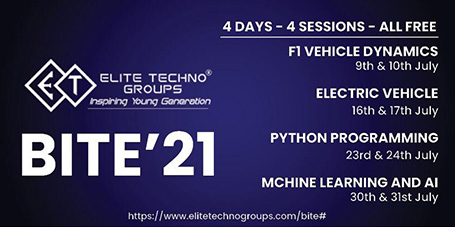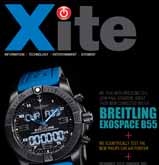 'The telco is entering into an alliance with Chinese gear maker ZTE, following a similar partnership with Finnish firm Nokia, for 5G services.'
'The telco is entering into an alliance with Chinese gear maker ZTE, following a similar partnership with Finnish firm Nokia, for 5G services.'
State-run Bharat Sanchar Nigam Ltd. expects to get the government’s approval soon for using airwaves in 700 MHz band for offering 4G services, and 5G services in the future, chairman Anupam Shrivastava said.The state-run telco has written to the Department of Telecom (DoT) to allocate airwaves in the 700 MHz band for rolling out 4G services. “Six slots of 5 MHz are already available in the 700 MHz band and we have asked for a slot to be allocated to us. We are looking at it also for offering ultra-high speed 5G services in the future,” Shrivastava said.
The telco is entering into an alliance with Chinese gear maker ZTE, following a similar partnership with Finnish firm Nokia, for 5G services, the BSNL chairman said. “For 5G services in rural and dense urban areas, 700 MHz, sub-700 MHz and unlicensed bands such as 2.5 GHz and 5.2 GHz will be used for Internet of Things (IoT) services in India,” he said. BSNL plans to soon sign a memorandum of understanding (MoU) with ZTE under the ‘5G and beyond’ programme, as part of which the latter will provide most recent technological updates and exchange ideas with the telco.
“The alliance (with ZTE) will be non-commercial with no obligations and based on knowledge sharing on what is happening worldwide,” Shrivastava said. ZTE recently announced doubling of its annual investment in 5G research and development to 2 billion yuan ($295.5 million) from 1 billion yuan last year.
In March, Nokia entered into a similar collaboration with BSNL to leverage its global experience in 5G-related industry initiatives focusing on software defined network (SDN) and multi-access edge computing.
In India, the use case of 5G technology may be different from that in Europe or rest of the world, according to Shrivastava, who said that in Indian cities, Internet of Things (IoT) could prove critical for waste management. Bharti chairman Sunil Mittal had said last month that 5G would come under aggressive focus and the evolution of 4G to 5G would be led by cross-industry collaboration.
“Globally, by 2020, 5G standardisation will be done including in China, which would lead with some early roll-outs. We expect 5G launch by 2021-22 in the Indian market, which is developing quickly driven by connectivity,” GSMA director general Mats Granryd said.
With India gearing up to adopt 5G technology in tandem with countries such as China, Japan, Korea and the US, telecom minister Manoj Sinha has said that the new technology will speed up the digital transformation in a number of industries, enabling IoT and automation. (Source: ETtelecom)

 E-commerce major Amazon is planning to ramp up operations in the North-East (NE) this year as part of its growth strategy.
According Akhil Saxena, Vice-President, India Customer Fulfilment, Amazon India, good demand has been noticed from the region and categories such as fashion (apparel and so on), consumer durables, personal care and consumables are seen as the demand drivers. “The focus is on expanding our delivery logisitics and ramping up operations. We have seen demand go up there (in the N-E),” Saxena told BusinessLine.
E-commerce major Amazon is planning to ramp up operations in the North-East (NE) this year as part of its growth strategy.
According Akhil Saxena, Vice-President, India Customer Fulfilment, Amazon India, good demand has been noticed from the region and categories such as fashion (apparel and so on), consumer durables, personal care and consumables are seen as the demand drivers. “The focus is on expanding our delivery logisitics and ramping up operations. We have seen demand go up there (in the N-E),” Saxena told BusinessLine. Facebook has 4,500 people who work to stop any attempt from extremists to hijack the website.
Facebook has 4,500 people who work to stop any attempt from extremists to hijack the website. A crucial meeting to settle the proposed merger of beleaguered online marketplace Snapdeal with market leader Flipkart, due to take place in Bengaluru over Monday and Tuesday, has been called off, said three people aware of the developments. The deal now appears to be falling apart after six months of hard negotiations. Law firm J Sagar Associates and banker Credit Suisse, which are representing Snapdeal in the negotiations, were to meet with their counterparts representing Flipkart — Khaitan & Co and Goldman Sachs — in a bid to close the transaction. But the talks have now been cancelled, according to the people cited above.
A crucial meeting to settle the proposed merger of beleaguered online marketplace Snapdeal with market leader Flipkart, due to take place in Bengaluru over Monday and Tuesday, has been called off, said three people aware of the developments. The deal now appears to be falling apart after six months of hard negotiations. Law firm J Sagar Associates and banker Credit Suisse, which are representing Snapdeal in the negotiations, were to meet with their counterparts representing Flipkart — Khaitan & Co and Goldman Sachs — in a bid to close the transaction. But the talks have now been cancelled, according to the people cited above.  The proposed merger of Reliance CommunicationsBSE -0.76 %' wireless business and Aircel is clouded with more uncertainty with the Department of Telecommunications setting the Supreme Court's go-ahead a condition for it to approve the deal. The department, though, is close to clearing the merger of Sistema's Indian business with RCom, people aware of the process said.
The SC had earlier this year threatened to cancel Aircel's licences if the top executives of its Malaysian parent, Maxis Berhad, continued to evade Indian courts over a case where they were accused of bribing politicians and officials. Cancellation of the licences could block the deal. DoT doesn't want to risk it clearing the merger and then the court making an adverse order.
The proposed merger of Reliance CommunicationsBSE -0.76 %' wireless business and Aircel is clouded with more uncertainty with the Department of Telecommunications setting the Supreme Court's go-ahead a condition for it to approve the deal. The department, though, is close to clearing the merger of Sistema's Indian business with RCom, people aware of the process said.
The SC had earlier this year threatened to cancel Aircel's licences if the top executives of its Malaysian parent, Maxis Berhad, continued to evade Indian courts over a case where they were accused of bribing politicians and officials. Cancellation of the licences could block the deal. DoT doesn't want to risk it clearing the merger and then the court making an adverse order.  Demonetisation and the subsequent push for digitisation has escalated risks relating to cyber crime and India needs to urgently upgrade its defences by setting up a cyber security commission on the lines of the Atomic Energy and Space Commissions, according to an IIT Kanpur study shared with Parliament's committee on finance. Noting that the government has initiated a number of programmes to enhance the participation of citizens in the fully digitalised economy, the study said cyber security centres set up by the Reserve Bank of India would be insufficient. "While RBI centres often come to IITs such as IIT-K for expert opinion, IITs do not engage in relevant research on cyber security," the study said.
Demonetisation and the subsequent push for digitisation has escalated risks relating to cyber crime and India needs to urgently upgrade its defences by setting up a cyber security commission on the lines of the Atomic Energy and Space Commissions, according to an IIT Kanpur study shared with Parliament's committee on finance. Noting that the government has initiated a number of programmes to enhance the participation of citizens in the fully digitalised economy, the study said cyber security centres set up by the Reserve Bank of India would be insufficient. "While RBI centres often come to IITs such as IIT-K for expert opinion, IITs do not engage in relevant research on cyber security," the study said.





